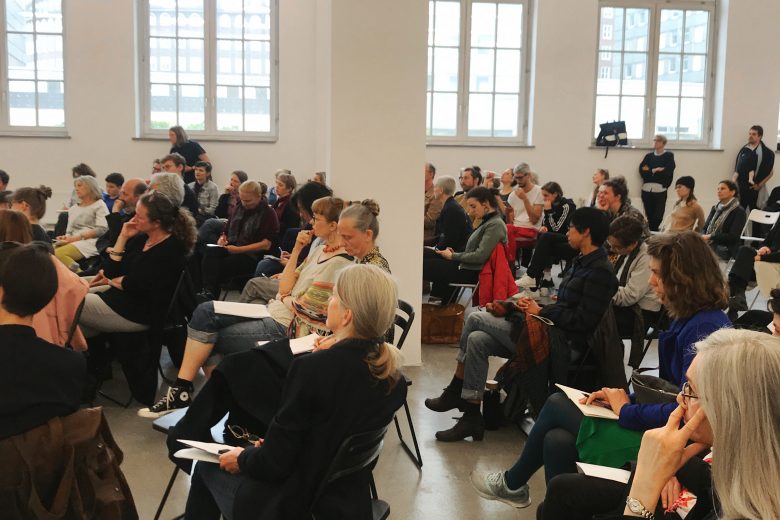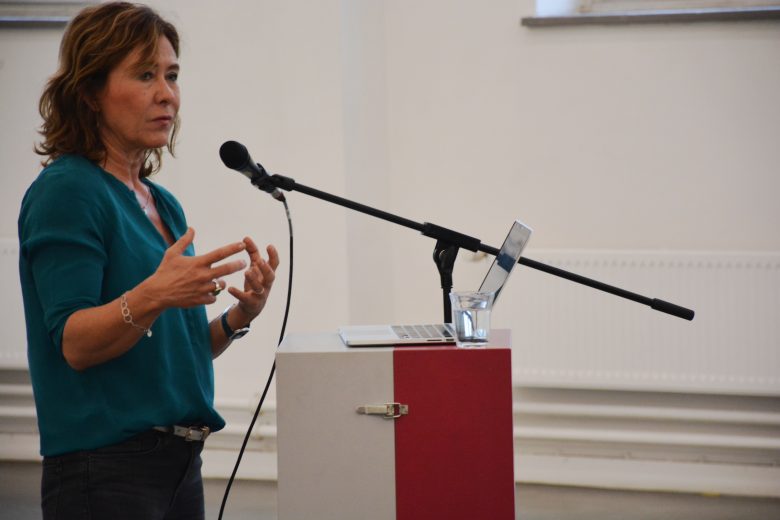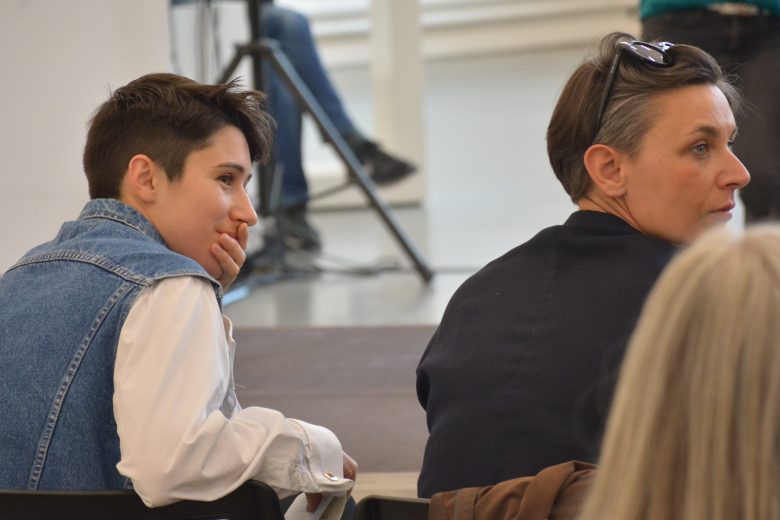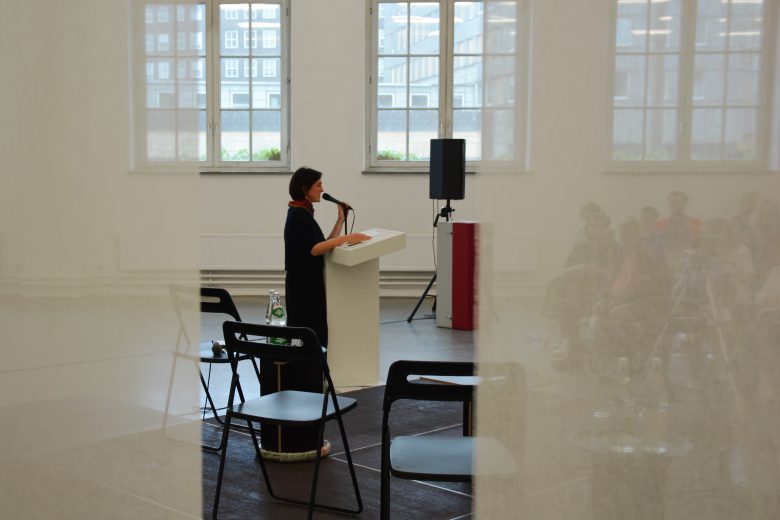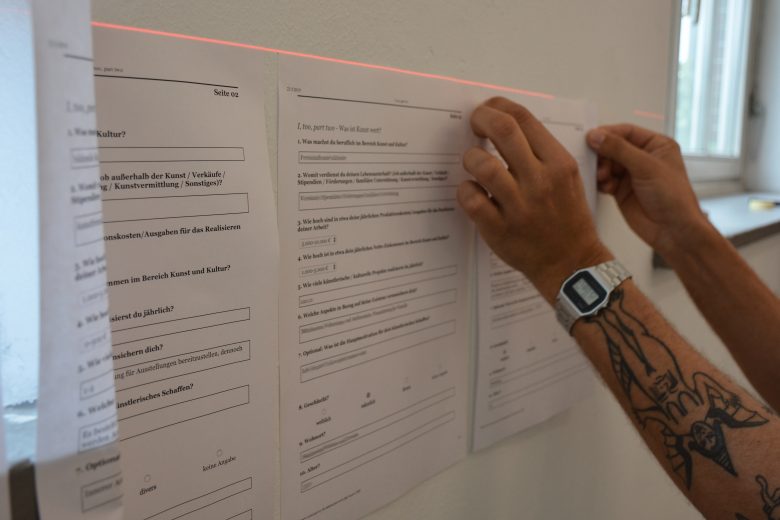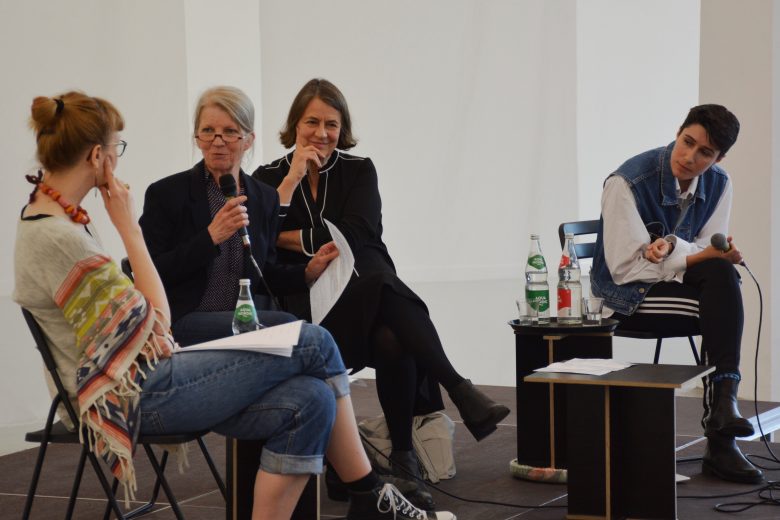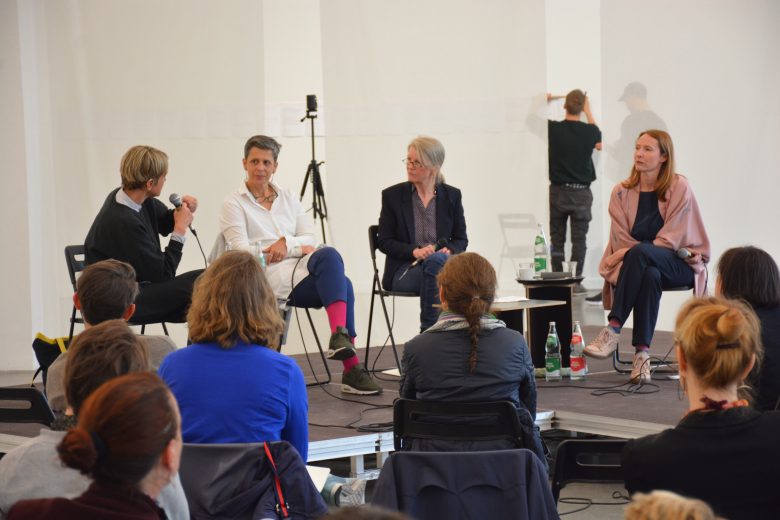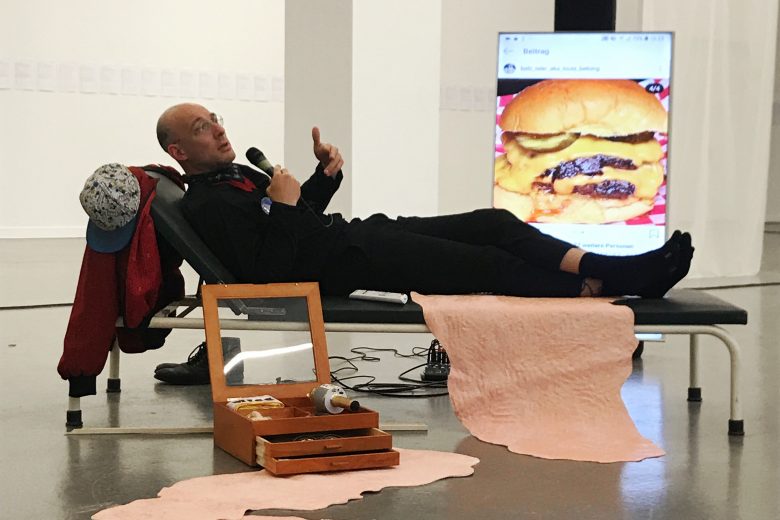I, too, part II
What is the value of art?
Symposium
25 May 2019, 10.30 am – 13:30 pm
Kunsthaus Hamburg
Nowhere else do hard facts gape so far apart as in art: The precarious working and living conditions of artists and the glamor factor at exhibition openings, biennales and fairs. But museums and institutions too are struggling with critical conditions and high demands they can barely meet anymore. After the kick-off panel I too, have been seduced by the promise of exposure that took place a year ago, we are now entering the second round. The symposium I, too, part II focuses on the societal value of critical art and sheds light on the urgency of creating enhanced conditions for it.
In times of global attention economies, international competition and network structures, as well as urban diversification, the local funding of art in a global context needs to be reassessed. Social change has also substantially altered the working and production conditions of art. It requires rethinking the customary understanding of the role of contemporary art and the preconditions under which it can be produced and have an impact on society.
Both local actors and representatives of national and international networks have been invited to discuss the current situation of artists and future-oriented possibilities and perspectives of promoting artistic work. The discussions are thematically accompanied by a performance program.
I, too is an initiative of individually connected artists and cultural producers from the Hamburg art and culture landscape. In a variety of formats, we offer a platform for negotiating the working conditions in the context of art and culture. We seek to raise the public awareness of this issue and sharpen the view of the differentiated interrelations.
PROGRAM
from 10:30 a.m. · Admission & coffee
Words of welcome: Katja Schroeder (Artistic Director, Kunsthaus Hamburg)
11:00 a.m. · Kick-off performance
What are the working conditions of artists really like today? The performance provides a → collective answer.
11:20 a.m. · Introduction: Anna Nowak (curator, Kunsthaus Hamburg)
Moderation of the panels: Dr. Melanie von Bismarck (freelance journalist)
11:30 a.m. · Keynote lecture
Art – What for?
Dr. Alexandra Manske (sociologist and political scientist, HCU Hamburg, Urban and Regional Economics)
12:00 p.m. · PANEL I
Free floating freelancers – Fake it till you make it!
Short lecture and panel with Alice Peragine (artist, Hamburg), Michaela Melián (artist, Prof. of Time-based Media, HFBK, Hamburg) and Dr. Astrid Mania (author, Prof. of Art Critique and Art History, HFBK, Hamburg).
From the onset, artists are forced to accumulate symbolic capital through unpaid and poorly funded exhibition participations. One’s CV is regarded as credit for a better future. But how can the success of artists be evaluated? In this panel, we discuss the structures and funding possibilities, as well as the potentials and objectives of public and private promotions and grants.
1:00 p.m. · Get-together: Lunch break in the Kunsthaus Foyer
1:30 p.m. · PANEL II
Cozy institutions? The Harsh Realities Behind the Scenes
Short lecture and panel with Katja Schroeder (Artistic Director, Kunsthaus Hamburg), Dr. Tulga Beyerle (Director, Museum für Kunst und Gewerbe, Hamburg) and Sophie Goltz (City Curator Hamburg 2013–16, Deputy Director Research and Academic Education, NTU CCA Singapore).
Not only Artist-Run spaces are struggling. Institutions and museums are also largely prone to deficits; even if the exhibiting artists enjoy greater visibility, fees can rarely be paid. What are the underlying mechanisms that produce these precarious conditions? In this panel, we would like to dissect and analyze these interrelations based on concrete examples.
2:30 p.m. · PANEL III
Hamburg – Gateway to the world?
Short lecture and panel with Johanna Bruckner (artist, Hamburg / Zurich), Tiphanie Blanc (curator, co-founder of wages for wages against) and Richard Frater.
How can sustainable models of funding art and culture be developed? Based on international initiatives such as W.A.G.E., New York, this panel focuses on functioning funding structures in an international context and discusses national approaches.
3:30 p.m. · Performance by Balz Isler
Kindly supported by



